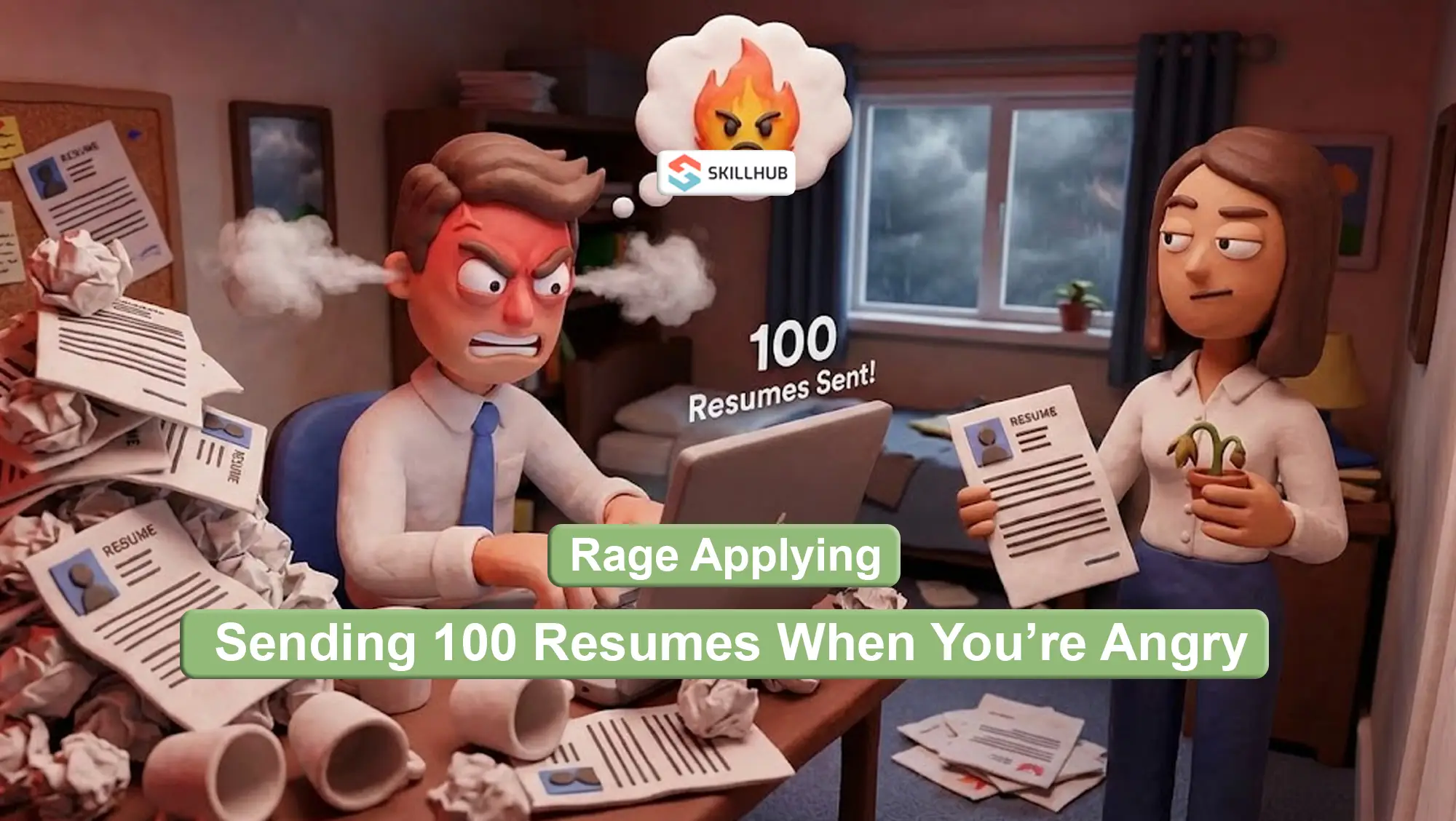How to Write a Resume for a Finance Job

The financial industry always requires new, qualified employees. Any company must have bookkeepers, accountants, and financial analysts with extensive work experience. Yet, the competition between job seekers on the market is fierce, and everyone wants to score the best position available.
An efficient financial resume is an applicant's main asset in the job search. But what is an efficient resume, and how to write a resume for a finance job? The most optimal solution is to get professional finance resume writers' assistance. Expert resume writers will make a winning resume for any hiring manager in the financial field.
Yet, if applicants want to write a financial resume independently, there are a few writing pieces of advice for that. This article will explore helpful tips and provide practical advice on crafting a winning resume for a job in finance.
Use Professional Formatting
Many applicants try to impress hiring managers with creative or quirky resume formats. They may use different colors, unorthodox fonts, and unusual formatting to catch recruiters' attention. It may look expressive but will not benefit the financial field job search.
A financial resume should be short, look professional, and stick to easy-to-read formatting. The best settings for financial resume formatting are:
- 1-inch margins
- Clear outline
- Professional fonts: Calibri, Helvetica, Cambria, Georgia
Try to fit your resume on a single page. If you need more space, write a second page but do not exceed the two-page limit. If there is too much information in your work history or skills section, choose only the most relevant details.
Write a Catchy Resume Summary
The main purpose of a finance resume is to show that an applicant can save a company's money or help to earn more money. If applicants convey this idea in their resume summary, there will be more chances that a hiring manager will read the rest.
A good resume summary shows that a candidate is qualified to meet the job requirements. A summary is a good resume element to sway more positions in the finance field. If an applicant wants to hit a particular occupation, they may use their resume's objective.
A resume objective is a statement that shows how one's qualifications may contribute to the company and why an applicant wants to work there. The rest of the resume will back the statement in the objective.
Finance resume objective example: "A highly motivated account manager with 5+ years of experience wants to contribute to the company's financial projects. I constantly look for opportunities to improve finance operations and optimize the financial flow in all the stages: from planning to concluding deals."
Choose the Proper Outline for a Resume
The clear distinction of the resume blocks will help recruiters quickly find the necessary information. There are several widespread resume formats:
- Chronological format
- Reverse chronological format
- Functional format
A chronological format shows job positions in direct consequence. This resume format fits applicants who have only started their careers but have certain work experience already.
Functional format places skills and qualifications in the first place. Then, the resume shows work experience. This format works well for entry positions. However, it is important to remember even in a functional resume; the experience section should not be empty. Any kind of experience is applicable:
- Volunteering
- Non-paid jobs
- Internship
Writing at least some experience is vital to convincing recruiters that a candidate is qualified for the job. The reverse chronological order format is the best option for a financial resume. It shows the most recent employment first and helps emphasize a candidate's biggest achievement.
The reverse chronological format should be concise. For example, using only the last ten years of work experience and respective positions would be wise. Besides, the reverse chronological format should feature only relevant job positions. For example, mentioning a year of experience in bank accounting will be more informative than two years in a coffee shop.
Write Relevant Work Experience Entries
When applicants describe their work experience, they should mention the title of their job position, years of work, and relevant achievements.
If possible, job seekers should provide information about the company's specialization besides its name. It will help determine what exactly a job seeker can perform. Years of experience should be precise also. For example, "April 2016 - January 2017" is a more relevant entry than "Work years: 2016-2017." Specific dates will prove that an applicant does not try to hide any holes in the work history.
Finally, job seekers should enlist quantifiable achievements when describing responsibilities and tasks in a job position. Solid numbers will serve as good proof of one's competence. For example: "I managed a team of five specialists," "I helped to forge 35+ profitable contracts for the company," and "I optimized the company's expenditures by 3%." Even the smallest achievements can prove an applicant's competence.
Skills Section
Applicants should use key and action words when describing their professional finance skills. Many recruiting firms use automated applicant tracking systems to scan through cover letters and resumes, and most of the documents do not reach the eyes of human recruiters.
Therefore, it would be wise to scan a job's description for the keywords to incorporate in a resume. ATS-friendly resumes have higher chances of landing an interview. The most popular finance hard skills are:
- GAAP (Generally Accepted Accounting Principles) knowledge
- Business Intelligence Software
- Tax preparation software
- Quickbooks
The more detailed and precise the software section will be, the more chances for an applicant to land a job. Names of particular programs and techniques are a plus in the skills section. Check if they mentioned experience with tracking operational expenses using specific tools, as this demonstrates practical financial management capabilities. Familiarity with financial automation platforms can also be a huge plus for your resume. Consider learning how to use multimodal, a platform that efficiently processes and analyzes data from multiple sources, helping you track operational expenses and demonstrate practical financial management skills.
Soft skills are important for the finance career field also. The most popular soft skills are:
- Attention to detail
- Communication
- Collaboration
- Time management
- Critical Thinking
Applicants should scan job announcements carefully and use as many keywords as possible. Yet, job seekers should not use any financial lingo in their resumes. Hiring managers may not be familiar with all ins and outs of the industry, and strictly professional terms may confuse recruiters.
Write about Relevant Education
The education section of the resume should contain all the relevant information about an applicant's academic background. This information includes graduation dates from high school, university, and respective diplomas.
Besides, all certifications should also be mentioned in this section, and for candidates still strengthening their quantitative foundation, tools like MathHomeworkHelp, which provide AI math homework help, can support deeper understanding of core financial and accounting concepts. The certificates in need are:
- Chartered Financial Analyst (CFA) certification
- Certified Public Accountant (CPA) certification
- Certified Financial Planner (CFP) designation
- Financial Modeling & Valuation Analyst (FMVA) certification
- Financial Risk Manager (FRM) certification
Any of these documents will greatly contribute to the applicant's resume. If you're considering the CPA route, it's wise to understand what the process involves including how much does a CPA cost before you commit to the path.
Additional Information
The last section of the resume features additional information that does not belong to any other part of the document. It is an opportunity for applicants to describe themselves, and recruiters may learn what kind of person stands behind the professional.
The additional information section should not be lengthy or feature irrelevant information. For example, applicants should write about their hobbies and activities that help them become better specialists in the financial sphere. On the other hand, job seekers should not write about their movie preferences, religious beliefs, or additional sensitive, personal information.
Writing Tips
Many templates are available for different kinds of resumes, including financial ones. Yet, not all the templates can cover applicants' experiences. Therefore, job seekers should modify the resume templates for their expertise, add the lacking section, and delete the excessive ones.
Applicants should tailor their resumes for each new position to which they apply. Tailored resumes with hand-picked keywords are more efficient in catching hiring managers' attention. Besides, job seekers should update their resumes annually. New trends and software solutions appear in the financial field regularly, just like updates in the best bitcoin exchange or wallet. If candidates fail to follow these trends and master new programs, they will have fewer chances to land a desired position.
Bottom Line
A resume for a financial position requires attention to detail and a careful approach. Of course, the best way to have a winning resume is to get professional help. Yet, several tips will help craft a compelling finance resume.
Applicants should use the proper keywords from the job's announcement, present relevant work experience, and keep the formatting professional. Applying these tips in resume writing will increase job seekers' chances of landing a job in finance.
%20(1).png)



%20(1).webp)